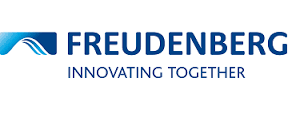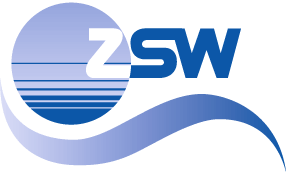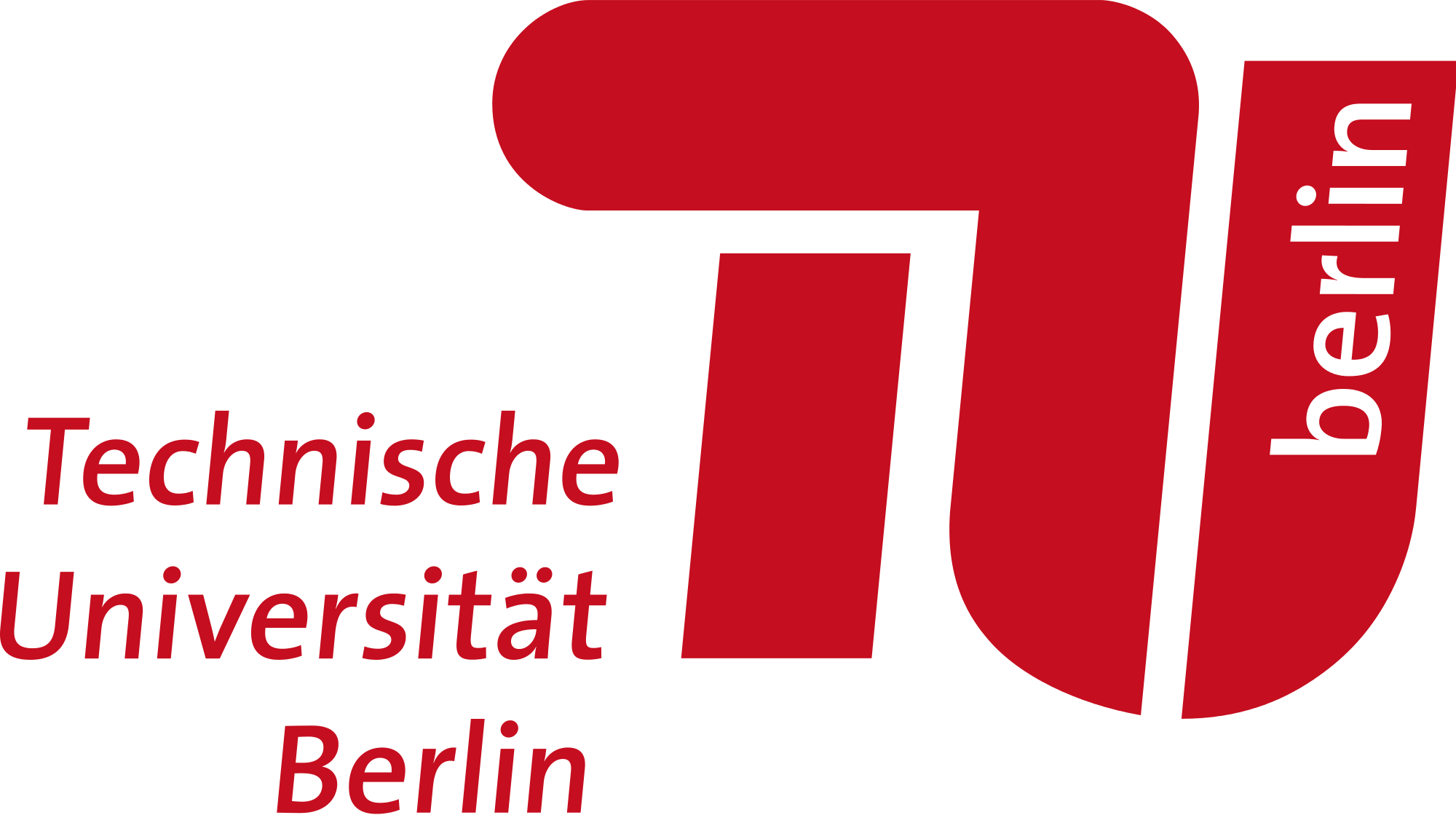____________________________________________________________________
CNRS - Centre National de la Recherche Scientifique, France - Coordinator - www.icgm.fr/aime

The laboratory "Aggregates, Interfaces and Materials for Energy" at CNRS Montpellier, Institute Charles Gerhardt, is a joint CNRS-University of Montpellier-Ecole Nationale Supérieure de Chimie de Montpellier joint research unit. The group is currently developing deposition methods for active reinforcements for fuel cell and electrolyser membranes, low-dimensionality electrocatalysts and their supports, non-PGM and ultra-low Pt catalysts, supported anode catalysts for PEM electrolysis. CNRS coordinated FCH-JU MAESTRO, where it introduced active nanofibre reinforcements and novel architectures for reinforced PFSA membranes and is coordinator of VOLUMETRIQ, which further develops these membranes and transfers them for fabrication at scale, ultimately for high volume production and CCMs. CNRS Montpellier participates in FCH JU INSPIRE with roles in membrane, low Pt and non-PGM catalyst development, and leads the CRESCENDO project on non-PGM catalysts for automotive MEAs.
____________________________________________________________________
BMW Group, Germany - www.bmwgroup.com
![]() BMW Group is a global manufacturer of premium class automobiles and motorcycles, covering the BMW, MINI and Rolls-Royce brands. In 2018 ca. 2.490 million automobiles and over 164,000 motorcycles were sold worldwide at total revenues of approximately € 97.5 billion. The BMW headquarters are located in Munich and German production sites include Munich, Regensburg, Dingolfing, Leipzig, Berlin and Landshut. BMW also has major production sites in Austria, South Africa, USA, Great Britain and China.
BMW Group is a global manufacturer of premium class automobiles and motorcycles, covering the BMW, MINI and Rolls-Royce brands. In 2018 ca. 2.490 million automobiles and over 164,000 motorcycles were sold worldwide at total revenues of approximately € 97.5 billion. The BMW headquarters are located in Munich and German production sites include Munich, Regensburg, Dingolfing, Leipzig, Berlin and Landshut. BMW also has major production sites in Austria, South Africa, USA, Great Britain and China.
In Munich, BMW operates its own research and development centre (FIZ, Forschungs- und Innovationszentrum, (Research and Innovation Centre), in which approximately 8,500 engineers are developing future cars and are conducting research and pre-development on various types of vehicles, systems and infrastructure designs. BMW Group´s expenditures for R&D summed up to €6.8 billion in 2018. Since BMW has a long tradition in participating in joint research programmes, its associates are very experienced in conducting and participating in national and European funded projects.
____________________________________________________________________
Johnson Matthey Hydrogen Technologies Ltd, United Kingdom - www.matthey.com
![]() Johnson Matthey Hydrogen technologies Ltd (JMHT) is a leading developer, manufacturer and supplier of fuel cell catalysts, membrane electrode assemblies (MEAs), catalyst coated membranes (CCMs) and other components to fuel cell and electrolyser developers worldwide. JMHT is a subsidiary of Johnson Matthey plc, a speciality chemicals company and world leader in advanced materials technology with over 13,000 employees in over 30 countries. JMHT develops, manufactures and supplies catalysts (under the well-recognised HiSPEC™ brand), electrodes and MEAs for low temperature proton exchange membrane (PEMFC) and direct methanol fuel cells (DMFC) and high temperature phosphoric acid based fuel cell systems (PAFC), and currently produces several hundreds of thousands of electrode/CCM/MEA product parts per annum. JMHT has 140 permanent employees, almost all based in the UK. Over 50% of the staff are professional technical personnel with science and engineering qualifications, working in research, product and process development. Significant investments have been made in recent years in world-class fuel cell materials and component research and MEA testing facilities at the parent corporate Technology Centre in Sonning Common, near Reading, and in the world’s first dedicated electrode and MEA manufacturing facility in Swindon, Wiltshire. Senior personnel have considerable experience in participating in, and leading, government supported R&D projects and JMHT has well-established administrative, financial and legal support groups to manage these projects and ensure successful delivery of the contractual requirements. Current FCH JU projects include DEMCOPEM, VOLUMETRIQ, INSPIRE, CRESCENDO, GRASSHOPPER and MAMA-MEA.
Johnson Matthey Hydrogen technologies Ltd (JMHT) is a leading developer, manufacturer and supplier of fuel cell catalysts, membrane electrode assemblies (MEAs), catalyst coated membranes (CCMs) and other components to fuel cell and electrolyser developers worldwide. JMHT is a subsidiary of Johnson Matthey plc, a speciality chemicals company and world leader in advanced materials technology with over 13,000 employees in over 30 countries. JMHT develops, manufactures and supplies catalysts (under the well-recognised HiSPEC™ brand), electrodes and MEAs for low temperature proton exchange membrane (PEMFC) and direct methanol fuel cells (DMFC) and high temperature phosphoric acid based fuel cell systems (PAFC), and currently produces several hundreds of thousands of electrode/CCM/MEA product parts per annum. JMHT has 140 permanent employees, almost all based in the UK. Over 50% of the staff are professional technical personnel with science and engineering qualifications, working in research, product and process development. Significant investments have been made in recent years in world-class fuel cell materials and component research and MEA testing facilities at the parent corporate Technology Centre in Sonning Common, near Reading, and in the world’s first dedicated electrode and MEA manufacturing facility in Swindon, Wiltshire. Senior personnel have considerable experience in participating in, and leading, government supported R&D projects and JMHT has well-established administrative, financial and legal support groups to manage these projects and ensure successful delivery of the contractual requirements. Current FCH JU projects include DEMCOPEM, VOLUMETRIQ, INSPIRE, CRESCENDO, GRASSHOPPER and MAMA-MEA.
____________________________________________________________________
3M Deutschland GmbH, Germany - www.3mdeutschland.de
 Dyneon GmbH is a subsidiary of 3M Deutschland GmbH, which is furthermore a subsidiary of the 3M Company. Dyneon GmbH has a managing director in Gendorf and 3M Deutschland GmbH has its headquarters in Neuss, Germany. The headquarters of 3M Company is in St. Paul. The fuel cell program at 3M was started over 20 years ago and has performed excellent research around nanostructured thin film (NSTF) catalyst technology. Furthermore, this laboratory had developed membranes, CCMs and MEAs that have resulted in many patents and conference papers. The research and development laboratory in Gendorf, Germany has investigated the synthesis and work-up of ionomers for over 15 years. The main contributor to GAIA will be the Gendorf site. However, where useful, insights/products from the St. Paul laboratory will be used in this project. The laboratory in Gendorf has presently numerous people working on the development of Perfluorosulfonic acids. These efforts have focused around the polymerization, work-up and characterization and processing of the ionomer. There are many polymerization and manufacture capabilities at the Gendorf site, with a wide spectrum of monomers that can be used. 3M (through Dyneon) was previously involved in the ForOxiE2 Project as industrial partner for the project, where it was investigating improvements to increase the proton conductivity and reducing crossover in the membrane.
Dyneon GmbH is a subsidiary of 3M Deutschland GmbH, which is furthermore a subsidiary of the 3M Company. Dyneon GmbH has a managing director in Gendorf and 3M Deutschland GmbH has its headquarters in Neuss, Germany. The headquarters of 3M Company is in St. Paul. The fuel cell program at 3M was started over 20 years ago and has performed excellent research around nanostructured thin film (NSTF) catalyst technology. Furthermore, this laboratory had developed membranes, CCMs and MEAs that have resulted in many patents and conference papers. The research and development laboratory in Gendorf, Germany has investigated the synthesis and work-up of ionomers for over 15 years. The main contributor to GAIA will be the Gendorf site. However, where useful, insights/products from the St. Paul laboratory will be used in this project. The laboratory in Gendorf has presently numerous people working on the development of Perfluorosulfonic acids. These efforts have focused around the polymerization, work-up and characterization and processing of the ionomer. There are many polymerization and manufacture capabilities at the Gendorf site, with a wide spectrum of monomers that can be used. 3M (through Dyneon) was previously involved in the ForOxiE2 Project as industrial partner for the project, where it was investigating improvements to increase the proton conductivity and reducing crossover in the membrane.
____________________________________________________________________
Freudenberg Performance Materials SE & Co. KG, Germany - www.freudenberg-pm.com
 FPM is the leading legal entity within the Nonwoven and Filtration Business Area of the Freudenberg Group. FPM develops, produces and markets nonwoven products for a wide range of applications such as tuft backings for carpets and for a variety of technical applications and medical as well as for hygiene products.
FPM is the leading legal entity within the Nonwoven and Filtration Business Area of the Freudenberg Group. FPM develops, produces and markets nonwoven products for a wide range of applications such as tuft backings for carpets and for a variety of technical applications and medical as well as for hygiene products.
____________________________________________________________________
Elmarco s.r.o., Czech Republic - www.elmarco.com
 Elmarco s.r.o. is the private limited company and the industry´s leading supplier of industrial scale nanofiber production equipment, based on proprietary needle-free electrospinning process. NanospiderTM patented technology uses simply shaped electrodes, has no parts easily clogged and is generally mechanically simple allowing nanofibers to be produced on a semi-industrial scale for various applications such as air filtration, liquid filtration, performance apparel, acoustics, medicine, battery separators, and inorganic materials. Elmarco s.r.o. was founded in 2000 and is based in Liberec, Czech Republic. It has offices in North Carolina; Hong Kong and Tokyo.
Elmarco s.r.o. is the private limited company and the industry´s leading supplier of industrial scale nanofiber production equipment, based on proprietary needle-free electrospinning process. NanospiderTM patented technology uses simply shaped electrodes, has no parts easily clogged and is generally mechanically simple allowing nanofibers to be produced on a semi-industrial scale for various applications such as air filtration, liquid filtration, performance apparel, acoustics, medicine, battery separators, and inorganic materials. Elmarco s.r.o. was founded in 2000 and is based in Liberec, Czech Republic. It has offices in North Carolina; Hong Kong and Tokyo.
The company’s R&D investment policy is largely to invest internally in development of our own range of proprietary equipment and electrospinning processes including the materials to be processed, thereby retaining the key intellectual property rights for these products.
The company conducts its design and development work in Liberec and provides, on request, customized research and development (CRD) work to develop the optimal and most suitable processes and materials, using its state of the art Nanospider™ technology and equipment. Elmarco offers a full range of development services from initial laboratory tests to full-scale production samples, including:
-
- Development of electrospinning processes for customer specific polymers and substrates;
- Development of application specific processes including peripheral equipment;
- Initial laboratory developments and tests; and
- Laboratory and production scale samples.
Elmarco is committed to working with its customers and partners to provide total solutions that meet their individual requirements and specifications.
____________________________________________________________________
Zentrum für Sonnenenergie und Wasserstoff-Forschung Baden-Württemberg, Germany - www.zsw-bw.de
 ZSW is a non-profit Research and Development Organization working in the field of Renewable Energies. The electrochemical energy technologies part of the institute has a research staff of 120 persons. Its research laboratories are located in Stuttgart and in Ulm (Germany). The interdisciplinary and application-oriented approach developed by the ZSW offers a high overall competence in finding industrially viable solutions. This defines the role of ZSW as a mediator in the development and the transfer of technologies from basic research to industrial applications.
ZSW is a non-profit Research and Development Organization working in the field of Renewable Energies. The electrochemical energy technologies part of the institute has a research staff of 120 persons. Its research laboratories are located in Stuttgart and in Ulm (Germany). The interdisciplinary and application-oriented approach developed by the ZSW offers a high overall competence in finding industrially viable solutions. This defines the role of ZSW as a mediator in the development and the transfer of technologies from basic research to industrial applications.
In the field of fuel cells ZSW is active in the development of hydrogen-fuelled Polymer Electrolyte Membrane Fuel Cells (PEMFC) as well as Direct Methanol Fuel Cells (DMFC) and Direct Ethanol Fuel Cells (DEFC) based on membrane technology. Furthermore, PEMFC stack technology operated on hydrogen up to a power of 114 kW has been developed in co-operation with partners from industry and other research organizations. In addition, development projects for the use of PEMFC in stationary and portable applications are currently carried out. Recently projects to assess the impact of hydrogen and air quality on the performance of PEMFC were started. ZSW recently completed the FCH-JU funded project AutoStack-CORE. Currently, ZSW is involved in the FCH 2 JU projects ID fast to identify accelerated testing methods for PEMFC and HYDRAITE to assess the impact of trace contaminants in hydrogen.
____________________________________________________________________
Technical University of Munich, Germany - www.tum.de
 Currently, the Technical University of Munich (TUM) has more than 39,000 students and approximately 545 professors, with particular expertise in Science, Engineering, Medicine and the Life Sciences. TUM is one of Europe’s top universities. It is committed to excellence in research and teaching, interdisciplinary education and the active promotion of promising young scientists. The university also forges strong links with companies and scientific institutions across the world. In 2006, TUM was one of the first universities in Germany to be rated University of Excellence (renewed in 2012). Moreover, TUM regularly scores among the best European universities in international rankings.
Currently, the Technical University of Munich (TUM) has more than 39,000 students and approximately 545 professors, with particular expertise in Science, Engineering, Medicine and the Life Sciences. TUM is one of Europe’s top universities. It is committed to excellence in research and teaching, interdisciplinary education and the active promotion of promising young scientists. The university also forges strong links with companies and scientific institutions across the world. In 2006, TUM was one of the first universities in Germany to be rated University of Excellence (renewed in 2012). Moreover, TUM regularly scores among the best European universities in international rankings.
____________________________________________________________________
Technical University of Berlin, Germany - www.tu-berlin.de
 The Technical University of Berlin (TUB) is a tier-one Science and Engineering school. Since 2005 the TUB is home to the German National Center of Excellence in Catalysis “UNICAT”, which seeks to bring together fundamental concepts and understanding of chemical and biochemical catalytic processes.
The Technical University of Berlin (TUB) is a tier-one Science and Engineering school. Since 2005 the TUB is home to the German National Center of Excellence in Catalysis “UNICAT”, which seeks to bring together fundamental concepts and understanding of chemical and biochemical catalytic processes.
The Electrochemical Energy, Catalysis, and Materials Science Laboratory at the TUB (head: Prof. Peter Strasser) studies surface electrocatalytic reaction processes at the liquid/solid interface on well-defined extended and nanostructured materials, mainly working on fundamental and applied aspects of obtained materials. Specific tasks include i) wet-chemical synthesis of well-defined and nanoscale metal catalysts as well as noble metal free nitrogen-doped carbon catalysts, and ii) evaluation of the electrocatalytic activity and stability of the new materials. Furthermore, the group has much expertise in the design and preparation of nanostructured particle catalysts of metallic or oxidic nature. The laboratory uses advanced analytical tools to characterise the geometric and electronic structure of new catalyst materials – ex situ and in situ analytical techniques (TPD, Raman, XAS, XPS, SAXS). Strong focus has been the use of synchrotron scattering and spectroscopic methods as well as electron microscopy methods to characterise the nanostructured catalytic materials.
____________________________________________________________________
Pretexo, France - www.pretexo.com
 Pretexo is a small company (EURL) – France created in 2007 by Dr Nathalie Cros. Pretexo has developed various activities to facilitate and improve information sharing, communication and dissemination between partners and towards the public.
Pretexo is a small company (EURL) – France created in 2007 by Dr Nathalie Cros. Pretexo has developed various activities to facilitate and improve information sharing, communication and dissemination between partners and towards the public.
Pretexo proposes its skills in various fields such as administrative management, reporting, implementation and maintenance of dedicated project websites and internal project workspaces, and meeting organisation. Pretexo's assistance allows the coordinator and each partner to focus on scientific aspects of the project. Pretexo is currently involved in administrative management and achievement of communication tools (web sites, internal workspaces, workshop organisations) of several European and French National Research Agency funded projects.
